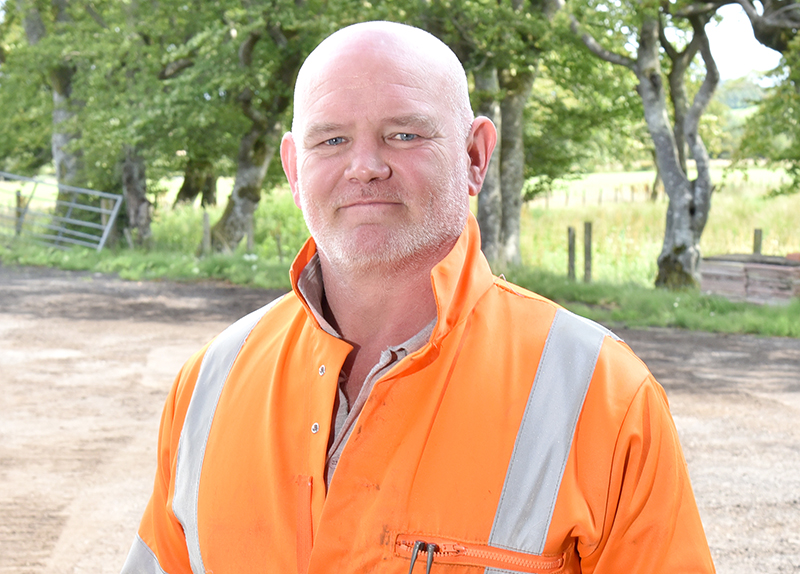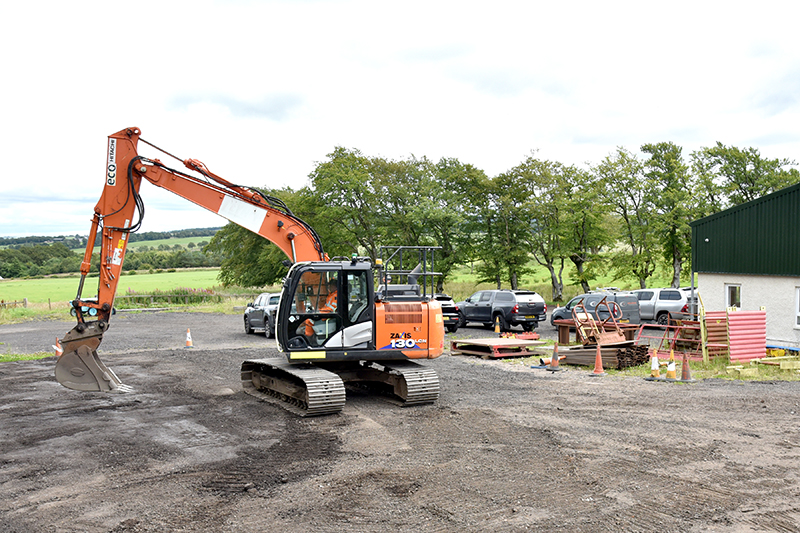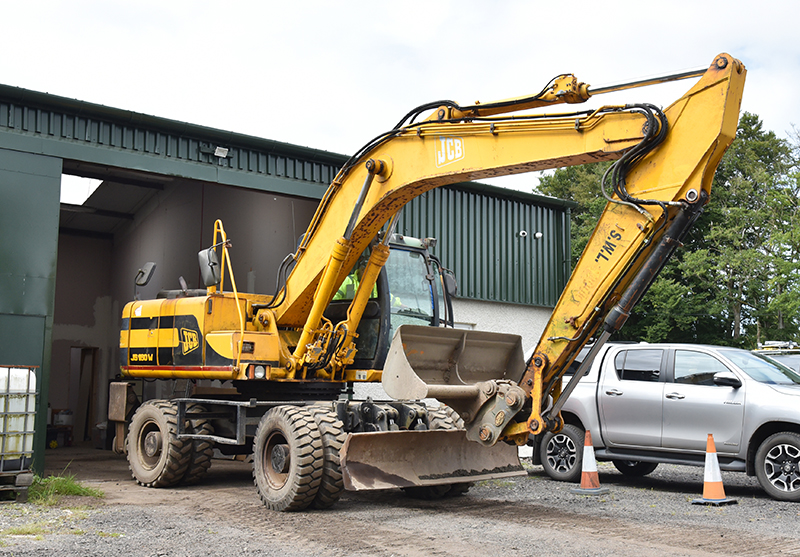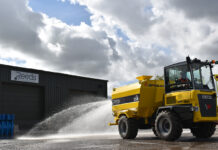SCOTTISH Water, Burnside Plant, and several local authorities are among the organisations to have benefited from Holeside Training’s first-of-its-kind IOSH-approved Safe Use of Shoring in Excavations training course.
First developed and launched by the Strathaven-based training specialist in 2010, the course has become increasingly important in recent years amid a push to build more homes, develop wind farm sites, and undertake complex drainage problems to mitigate extreme weather.
“If shoring is not done correctly, or there’s no shoring put in place and it goes wrong, then there’s a good chance it’s going to be fatal,” Chris Docherty, partner and trainer at Holeside Training, told Project Plant.
Founded in 2006 by experienced construction duo Bobby and Hugh Russell, Holeside provides a range of training courses targeted at operatives from sectors including construction and plant, demolition, and local government.
Chris joined the business in 2007 having previously worked as a trainer and assessor at the CITB’s National Construction College. Prior to that he worked in the drainage sector, where he helped to deliver a number of projects involving shoring.
Praising the awareness of companies to the dangers, he revealed that demand has been growing in the bespoke course, with the accompanying IOSH accreditation considered to be beneficial when tendering for projects.
“We deliver courses for a lot of utility and groundworks companies working on deep drainage,” he added. “They’re doing work for housebuilders who are asking for that sort of accreditation.”

The two-day course was initially developed to fill a gap in the market, with the only other existing shoring course being delivered across a longer five-day period – which was sometimes viewed as an unreasonable amount of time for firms to sacrifice their workforce for. Topics covered include design, installation guides, and practical installation of trench boxes, sheet piles, weather frames, and manhole bracers.
“We’ve not diluted in any way what we do,” Chris added. “What we’ve done is taken the important bits and focused attention on them. We highlight a lot of stuff to do with design because that’s where a lot of issues begin – you need to make sure that whatever temporary works you’re putting in place has been designed and is suitable to do the job it’s meant to do.”
A number of local authorities have put employees through the course, alongside a range of plant and construction businesses. Interestingly, Chris revealed that companies are increasingly putting forward team members who aren’t directly involved in the shoring works.
“We’ve got companies putting on project managers, site engineers, and site agents so that they have an understanding of shoring, even at the ordering stage,” he said.
The practical-heavy course is delivered from Holeside Training’s impressive new 20-acre site in Strathaven, South Lanarkshire, which features modern classrooms and a number of training zones capable of delivering multiple courses at once.
CPCS, NPORS, SVQ, and other IOSH courses are also available. In terms of construction equipment, Holeside provides training on dumpers, telehandlers, dozers, dump trucks, and a range of demolition plant, as well as smaller kit such as manual handling equipment.
The diverse offering has resulted in the development of a partnership with East Ayrshire Council’s employability team, which has seen a number of novices obtain tickets to boost their career prospects and help alleviate well documented skills shortages in the plant industry. Major companies such as Story Contracting have also put through individuals at the start of their careers in a bid to ensure Scotland has the required talent pool to meet ambitious infrastructure goals.
“We tailor training to individual needs, rather than a one-size-fits-all approach,” Chris added. “We do three (initial) assessments to see how much training each individual requires.”
Prioritising hands-on training, Chris explained that operatives don’t develop as well when courses are too classroom-heavy. “They want to be in the plant machinery actually doing the work – and I find that’s the easiest way to train people,” he revealed. “People tend to learn better with an item in front of them, more than they do looking at a TV screen.”
• For more information about the courses available, visit www.holeside.co.uk













